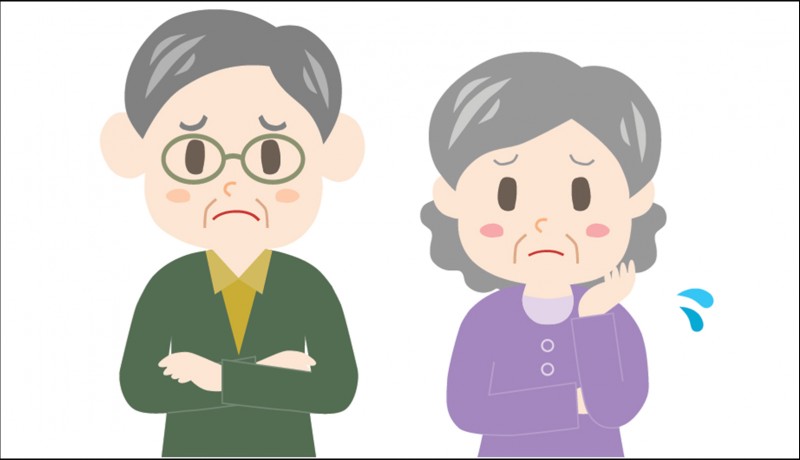
Columns

Dr Harshbir Rana answers your queries on personal and social issues related to ageing, elder care and intergenerational relationships
Q. My husband retired four months ago and it was something both of us were looking forward to. The reality, sadly, has been completely different. He has nowhere to go to and spend his time productively. His presence at home the whole day has resulted in a lot of interference in household activities, which he has no clue about. He is suddenly critical of my way of handling things and I seem to be stuck at home with an angry, old man. How do I handle this situation?
A. Retirement brings a major change in one’s life and like all changes, for some time, it is difficult to adjust to. While some people feel they have worked for too long and look forward to retirement, many silvers I have worked with believe they have retired too soon, and some are even petrified of the retirement years. Indeed, very few are able to plan right for their retirement; the majority of silvers create a rosy picture in their minds and when it is time, they find it far from reality. Let us understand this reality.
Retirement means:
- Loss of/reduced income
- Loss of a lifestyle
- Loss of a profession
- Loss of colleagues
- Loss of professional challenges
- Loss of a routine
- Loss of status
- Loss of privileges
- Empty hours
- Feeling of uselessness
If not handled properly, retirement can lead to:
- Suppressed anger
- Outbursts of anger
- Arguments
- Marital discord
- Loneliness
- Isolation
- Depression
- Financial instability
- Homelessness
- Fragmented family
- Compromised lifestyle
In your case, there seems to have been insufficient retirement planning. I can suggest some steps for you and your husband to make this phase of your life productive and meaningful.
The first step would be to sit with your husband and understand what he is feeling. Then, explain to him how you are feeling. Only when you both understand each other’s anguish and empathise with each other can solutions be found.
Some steps you can both take to give each other space are:
- Part-time employment
- Volunteering
- Making a routine for the day
- Socialising
- Distribution of household tasks
- Keeping some ‘me’ time
Some things you can do together are:
- Plan an annual holiday/weekend getaway
- Join social groups
- Cook a meal together
- Do a physical activity together
- Plan get-togethers with family and friends
It is important that you both keep your individual relationships alive. The more you communicate positively with each other, the happier your sunset years will be. Having a good relationship with family, both close and distant, friends and neighbours also adds zest to life.
Q. My mother-in-law is 68 and has a severe knee problem. She has been advised to take the support of a walking stick but refuses to use it owing to the stigma attached to it. We are scared she might fall and hurt herself. What can we do to help her?
A. This phenomenon of the elderly not wanting to use a walking stick was one of the findings of my doctoral work. There is a resistance in using visible aids such as walking sticks as they are seen as an acknowledgment of ageing. There is also a factor of vanity. Recently, I visited a 94 year-old who was recovering at home after a hip surgery. She was able to walk with her stick but refused to leave home with it. She told me frankly, “I refuse to advertise my old age and helplessness.” So the problem you face is a fairly common one.
Be very kind and polite to your mother-in-law when speaking about the issue. Let your husband gift her a lovely wooden stick on any occasion, like her birthday, and cajole her into using it occasionally. When she uses it and finds it beneficial, she will accept it as part of her life. Some silvers even create a collection of walking sticks to match their attire! Just don’t make it an issue as she must already be feeling gloomy about reaching the next step of ageing.
Dr Rana is a New Delhi-based social gerontologist and Founder of Positive Aged. Email her with your queries at positiveaged@gmail.com or write to us at contact.us@harmonyindia.org. Visit www.positiveaged.com
Photo: iStock Featured in Harmony — Celebrate Age Magazine November 2018
you may also like to read
-
Mental workout
Mukul Sharma tells you how to keep those grey cells ticking Everyone will ultimately lose his or her brain….
-
Helpline
Dr Harshbir Rana answers your queries on personal and social issues related to ageing, elder care and intergenerational relationships ….
-
Off the cuff
Raju Mukherji pays tribute to his first hero, Tenzing Norgay, an exemplary mountaineer Darjeeling, 1955. Dr ‘Pahari’ Guha Mazumdar….
-
Yoga RX
Shameem Akthar shows ways to control debilitating ankle pain through regular practice Ankle pain is so common and prevalent….







